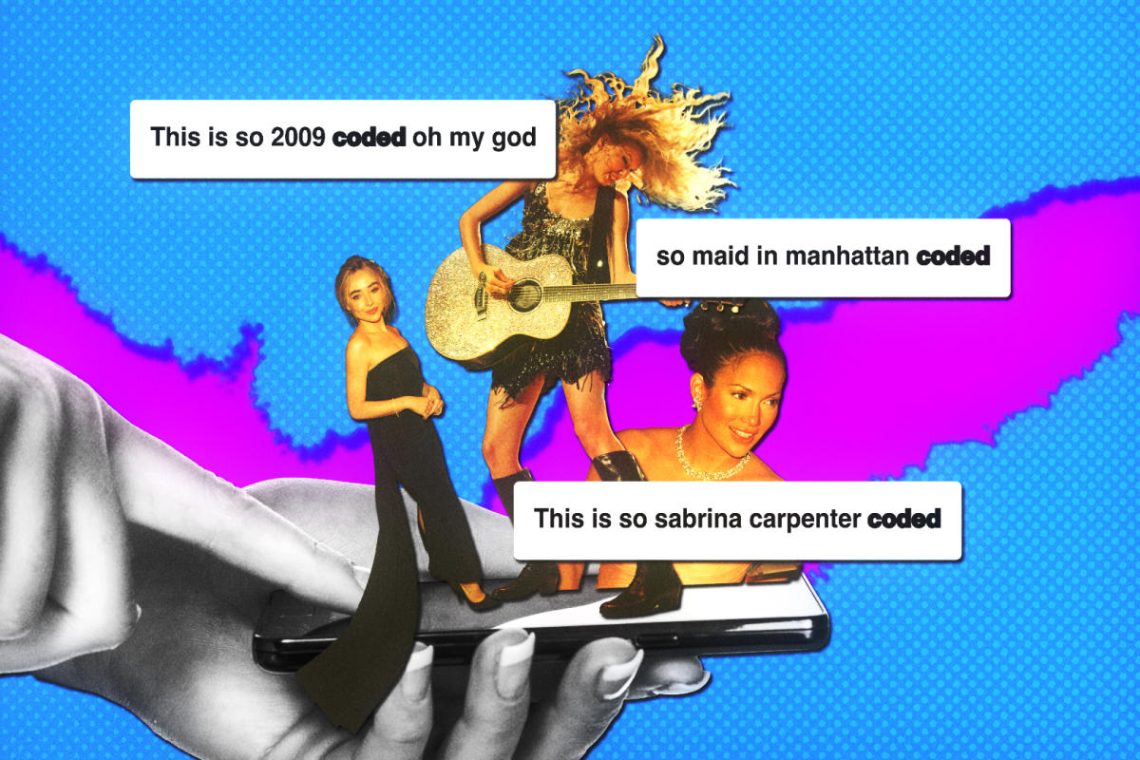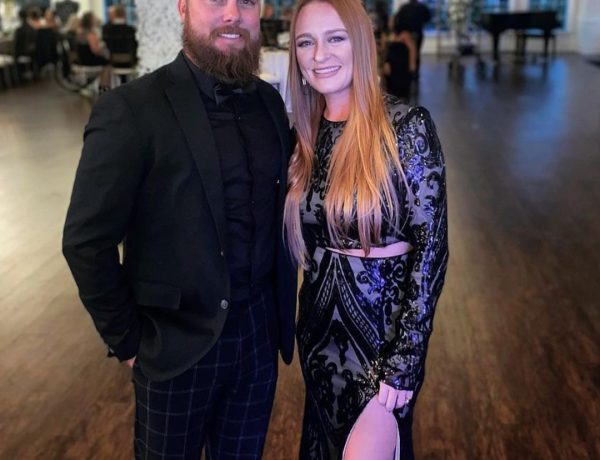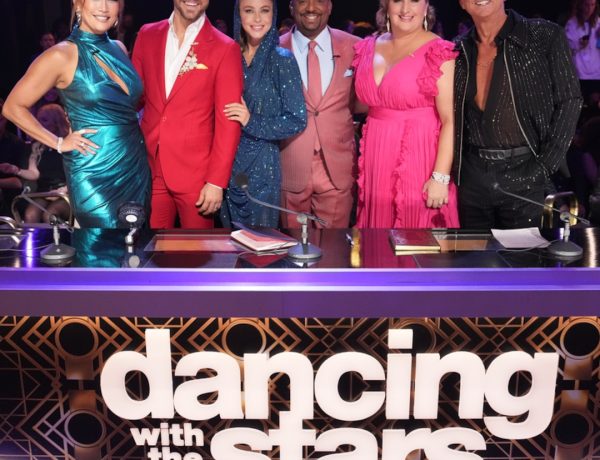When paparazzi photos of pop star Olivia Rodrigo and her actor boyfriend Louis Partridge emerge, fans on social media describe the pair as looking like the protagonists from Twilight, calling them “Bella Swan and Edward Cullen coded.” Fresh off back-to-back Coachella performances and an appearance at the Met Gala, “Espresso” songstress Sabrina Carpenter gets characterized as “Barbie coded,” her blond hair and outfit choices giving a callback to the Mattel doll.
The word isn’t used to describe just celebrities under 30, either. A compilation of clips from Keanu Reeves movies has TikTok calling him “so babygirl coded.” Social media users referred to Jennifer Lopez as “so Maid in Manhattan coded” in her Schiaparelli couture gown at the Met Gala.
People have often referred to themselves, as well as others, as “me coded,” “you coded” and “them coded” in tweets, too.
Back up. What are people talking about when they say someone is “coded”?
‘An overall feeling and experience’
On social media platforms, it’s likely you’ll come across “coded” being used playfully to express resemblances or similarities to other people, places or things.
“If someone tweets, ‘Olivia Rodrigo is so rockstar gf [girlfriend] coded,’ the writer is making assumptions about what the reader knows: who Olivia Rodrigo is, what a so-called rockstar gf aesthetic is and how to interpret ‘something is so something coded,’” Marissa Fond, an assistant teaching professor at Georgetown University’s department of linguistics, explained to Yahoo Entertainment. “It might be the case that ‘something is so something coded’ indexes particular identities (one, for example, might be ‘young’). ‘Rockstar gf’ used without explanation might index social group membership based on particular cultural knowledge.”
Fond explained that the modern use of “coded” is what sociolinguists call “indexical.” An indexical link refers to the relationship between linguistic form and social information.
“If the reader gets it, then the writer and reader are affiliating. They’re in their own little in-group,” she said.
“Coded,” much like the equally popular descriptor “vibes,” hinges on a certain abstractness, Lal Zimman, a linguistics professor at the University of California, Santa Barbara, told Yahoo.
“It’s just an overall feeling and experience,” Zimman said. “I think that there’s the parallel to ‘vibes’ [in that] we use language in this way to talk about these sorts of abstract concepts.”
Taylor Swift’s musical works and outfits are frequently cited as being “coded,” where sometimes she’s seen as referencing past versions of herself.
On X, one fan referred to an image of Swift during one of her four “Eras Tour” performances in Paris in May as being “so 2009 coded.” In the photo, Swift is wearing a silver-and-gold fringe minidress, which she wore during the Fearless portion of her concert.
Fearless, Swift’s second studio album, was released in the U.S. in late 2008 and worldwide in early 2009. The pop star’s aesthetic during this time was characterized by fairytale motifs, sparkly gold fringe dresses and romantic ball gowns. To say, then, that this recent Swift look is “coded” as being “so 2009” hinges on the assumption that other fans and social media users are familiar with Swift’s public image from a particular point in time.
The ‘coded’ evolution
While this new online use of “coded” denotes a casual, positive essence (or vibe, if you will), that hasn’t always been the case. The word, according to Valentin Werner, a historic linguistics professor at the University of Bamberg in Germany, dates to the late 1960s and early 1970s.
“Coded,” Werner explained, was used mainly in social sciences to denote race, gender and sexuality — often with an inherent and typically negative connotation.
In the last 10 years, “coded” underwent semantic change. The word has now expanded its range of meanings to include what Werner describes as “very concrete, [pop] cultural references and artifacts.”
Joseph Trotta, a pop culture linguist at the University of Gothenburg in Sweden, told Yahoo that it’s fair to assume the word’s new connotation stems, in part, from its technical background.
“‘Code’ and ‘encode’ have a longer history (e.g., any message can be coded to transmit a hidden meaning), of course, but since the word in this sense is popular now is probably not a coincidence,” he explained.
Trotta said “coded,” particularly in the pop culture-centric context it’s being used in, was likely popularized between 2013 and 2015 around fan discussions about the animated television series Steven Universe on social media platforms like Tumblr.
The coming-of-age show follows the titular character, Steven Universe, a young boy who is half human and half Gem — a magical race of alien beings — who is tasked with protecting the universe from intergalactic threats. Know Your Meme, a website that charts the origins of internet memes, suggests that these Gem characters prompted online discussions about things being “race coded” or “Black coded” based on stereotypical traits but without overt depictions in animation. (Trotta said Know Your Meme should be considered a starting point for trend-tracing, not a scholarly source.)
“In these discussions, the word relates to how characters in media are perceived in terms of racial or other identity-based traits,” he explained, adding that there are also recorded instances of the word being used in a similar way before the Cartoon Network series debuted. “This suggests that while Steven Universe may have popularized or catalyzed its use, ‘coded’ might have been part of certain subcultures or discussions prior to gaining broader visibility.”
These days, it seems “coded” is being used in a more generic context that’s playful and light. This shift in usage, Zimman said, was likely influenced by Gen Z and Gen Alpha.
“With a lot of language that’s advanced by youth, there can be a kind of academic labor to it because they’re innovating language and they’re in school,” Zimman said. “I think there’s an additional level of humor of going from talking about race, gender, sexuality and oppression and flipping that and talking about something really fun and silly.”
As for “coded” crossing over into more regular usage, Trotta thinks it happened because of its versatility in discussions about media, fan theories and online character analysis.
“It allows for subtle, nuanced conversations about identity and representation without overt labels,” he said.





